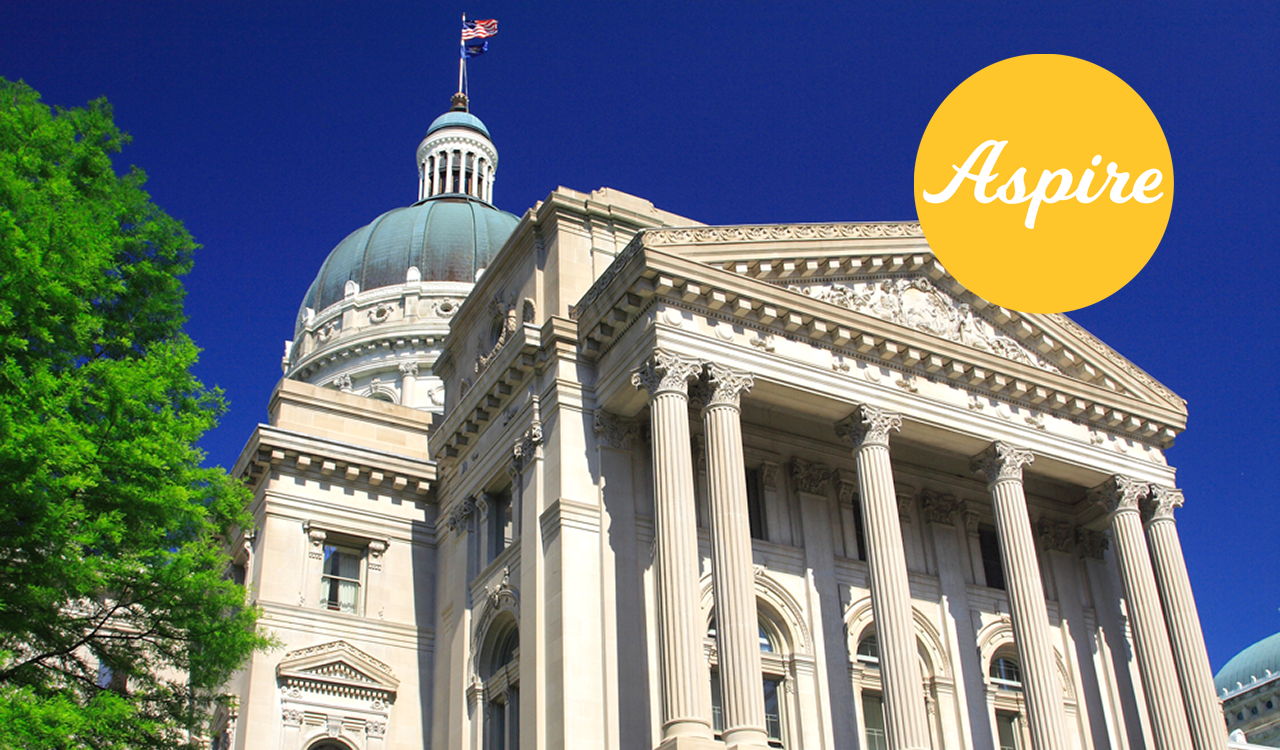Statehouse Update – Final Committee Action on Key Bills

Last week was the final week for bills to get passed out of committee this session. This week is the third reading deadline for bills to receive their final floor vote. A lot happened last week, including on one of Aspire’s priority topics – transit. If there were not enough controversial education bills this session, education bills were also used to dredge up old attacks on transit.
Amend-a-thon
Republican legislators worked in overdrive at attempts to re-engineer local transit from the Statehouse. After bills targeting public transit development were placed into the tomb of the Rules Committee earlier this session, an attempt to kill one of Indy Go’s planned Bus Rapid transit routes, the Blue Line, was again brought to life in the House Ways and Means Committee early last week. An amendment was offered to an education bill, SB 290 which would have required IndyGo to maintain two lanes of traffic on all of Washington Street along the new Blue Line rapid bus route. IndyGo testified that this would have required IndyGo to purchase much more land than originally planned – and funded – which would have killed the entire bus line project.
We are not sure how transit route engineering was germane to a state education bill. House Ways and Means Committee Chair Tim Brown explained the amendment was worded incorrectly. Then in a frenetic fashion, the committee twice tried to make a technical correction to the bill. After some confusion, the amendment was tabled with bipartisan support.
Another anti-transit amendment popped up for HB 1251. The amendment would create a roadblock in a pilot partnership between IPS and IndyGo which provides transportation to local high schools, saving money for the district while giving older students a reliable way to extracurricular programs, work, and other activities with free bus passes. The amendment was filed but not offered in committee. It could be offered on the floor this week.
Employer Health and Safety Mandates
We have discussed the progress of this priority issue each week this session, which actually began last November when the House decided to conduct off-session hearings and intended to ram their draft legislation through, bypassing the normal committee hearing process.
As a reminder, Aspire supports the freedom of businesses to create health and safety standards that work for their individual companies’ pandemic response – this includes requiring, or not requiring, their employees to become vaccinated against COVID-19. Hoosier businesses value their ability to operate with limited government interference. Employers are equipped and informed to decide how health and safety guidance best fits their businesses, employees, and customers.
HB 1001, aimed at preventing employer vaccine mandates, will face a final Senate vote this week, setting the stage for a potential conference committee showdown since the House killed the mirror legislation, SB 3 due to a host of poison pill amendments. The language in SB 3 was added in a floor amendment to HB 1001. We told you last week that the Senate made some positive amendments to HB 1001 leading to a bill Aspire can now support. The conversation will continue as leaders are expected to hash out differences. We will stay engaged.
Super TIF
Last week we explained the Indiana Economic Development Corporation (IEDC) put forward legislation to improve the tools in our company attraction incentive toolbelt. IEDC is a vital economic development partner and supports the bill’s intent. As always, however, the devil is in the details. When we dove into the language on SB 361, we had concerns about the state-controlled Tax Increment Finance (TIF) district (capturing new property revenue), without having to collaborate with local economic developers or local officials. These large-scale “innovation districts” are not a new concept or tool – other states have successfully used them to win huge projects (like the massive auto battery production projects). We need Indiana to win similar game-changing deals and agree careful creation and use of new “super TIFs” might boost Indiana to the winner’s podium.
Several amendments were made to the bill last week we believe will strengthen the innovation district model, along with state and local partnership. The changes now require the local tax increment to be reinvested in the IDD (rather than a statewide fund). The changes also remove the local income tax increment, reducing the local revenue impact and avoiding the complexity of dividing distributions for workers employed in an IDD but living in another county. Local representation will also more closely collaborate with the state on a special oversight board to oversee projects in the districts.
Work continues on these and other important matters. It is now crunch time. We will pay special attention to every conference committee to ensure the issues we have worked hard on will continue in the positive trajectory we have influenced.
As we often report, wedge issues pop up as floor amendments and are used as bargaining tools in conference committee negotiations. This is when the session turns into a game of whack-a-mol. Thanks to our skilled lobbyist and a strong coalition of chambers of commerce, Aspire plays with a big mallet.
